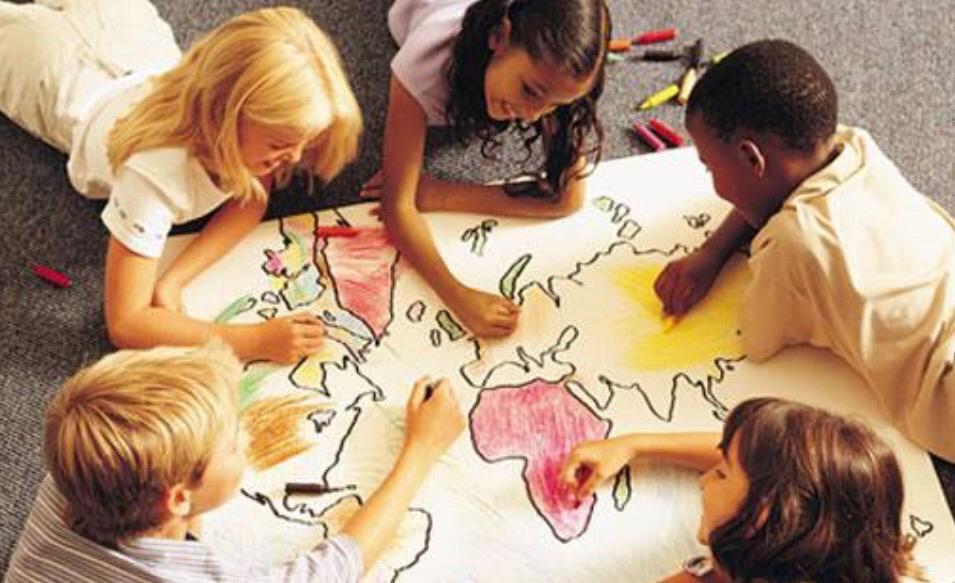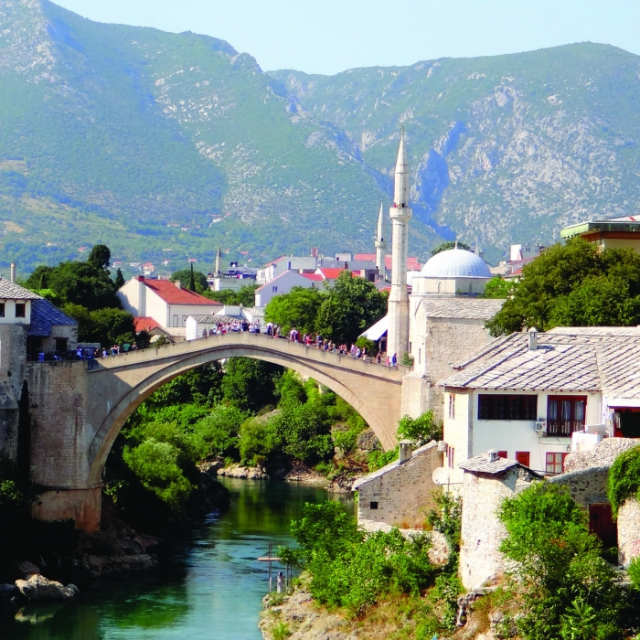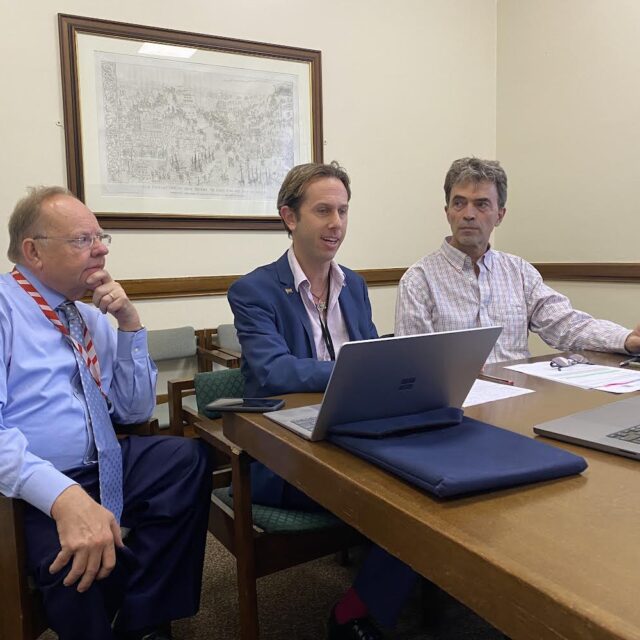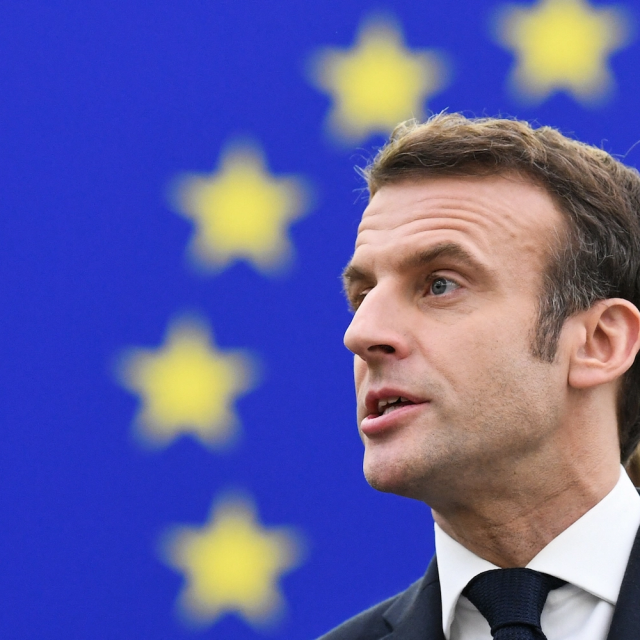Radical ideologies play a key role in brainwashing individuals and encouraging them to commit violent acts. Correct tools are needed to address different radicalisation scenarios so that effective prevention can be realised, writes Hande Bozatli.
All stakeholders, including civil society, cultural networks, national, local and regional governments, have a crucial role to play in early detection and prevention of the root causes of violent radicalisation and terror.
In September 2016, European Union leaders met in Bratislava in Slovakia to discuss their shared future in the European Union. In building this future, the leaders said that they needed to focus on the expectations of citizens and give them a vision of Europe that they could trust and support.
Culture refers to characteristic patterns of attitudes, values, beliefs, and behaviours shared by members of a society or population. Culture includes many elements, including language, customs, beliefs, traditions, and ways of communicating.
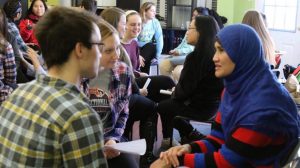
Europe promotes cultural diversity. Cultural diversity is richness in the society. Culture is everywhere. It goes well beyond museums, heritage sites or traditional cultural institutions which are in our daily life. Culture also plays an increasingly important role in various policy areas, including innovation, economic development, social cohesion, urban planning and cities’ external relations strategies.
Cultural diversity is a key objective of the Council of Europe and is frequently addressed in the programmes and measures of national or regional cultural policies.
Intercultural Dialogue is a task for democratic governance. Based on the “Sharing Diversity” project, The ERICarts Institute 2008 carries out an Intercultural dialogue as a process that comprises an open and respectful exchange between individuals, groups and organisations with different cultural backgrounds or world views.
Intercultural dialogue establishes linkages and common ground between different cultures, communities, and people, promoting understanding and interaction. With 27 countries and many cultural groupings and identities within the European Union, intercultural dialogue is essential for avoiding conflict and the radicalisation of citizens through their cultural identity.
The European Commission has so far undertaken and supported a variety of initiatives to support intercultural dialogue, including through ‘Creative Europe’ and the Culture Programme ‘European year for intercultural dialogue’, and the 2008-13 ‘Platform for Intercultural Europe’. From 2011-2014, a group of experts appointed by national governments produced a report on the role of public arts and cultural institutions in the promotion of cultural diversity and intercultural dialogue. In 2015, due to the huge numbers of refugees and asylum seekers arriving in the EU, national culture ministers agreed to create a new policy coordination group on intercultural dialogue which focused on the integration of migrants and refugees in societies through the arts and culture.
Intercultural dialogue is also on the agenda of the EU’s structured dialogue with civil society. Discussions with interested stake holders took place in 2016, on promoting intercultural dialogue and bringing communities together through culture in shared public spaces and, and also on the role of culture in promoting the inclusion of refugees and migrants.
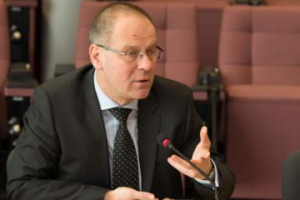
On 8 June 2016, the EU High Representative and Vice-President Frederica Mogherini and Commissioner Navracsics proposed to develop an EU strategy for international cultural relations. Their proposal was putting cultural cooperation at the centre of the EU’s diplomatic relations with other countries around the World.
Furthermore, Regional and Local Cultural policy is also an increasingly important area of public policy-making that governs activities related to culture. New cultural policies in cities are aimed at augmenting or leading local development, and at developing long term cultural visions and programming at local level. Local and regional governments, being closer to the citizens, promoting cultural diversity and accessibility, promoting links between innovation and culture, enhancing and supporting the artistic, ethnic, sociolinguistic, literary and other expressions of heritage of all people. Whether as a majority or a minority, people have real chances to access decision making processes and to improve their wellbeing.
“Intercultural cities” is a capacity-building and policy development field programme which has been implemented by the Council of Europe in partnership with the European Commission. The Intercultural cities programme puts the principles and practices of cultural diversity and intercultural dialogue at the core of this programme. The programme’s long-term approach will contribute to the sustainability of one of the Council of Europe’s declared priorities about diversity.
The Cult-RInG project is an inter-regional cooperation project, co-funded by the European Regional Development Fund. This project aims at improving natural and cultural heritage policies in the Interreg Europe Programme, which helps regional and local governments across Europe to develop and deliver better policy for people.
Cultural Routes of the Council of Europe have been established to stress the importance of European identities. The Council of Europe Enlarged Partial Agreement (EPA) on Cultural Routes contributes to the protection and development of natural and cultural heritage. Cultural Routes (CRs) are used as powerful tools to promote and preserve EU’s shared and diverse cultural identities.
The ‘Culture for cities and regions’ project funded under the Creative Europe programme (DG EAC) aims to stock the existing practices all over Europe, to exchange and promote the transfer of knowledge and to better understand successful cases of cultural investment. This three-year project is led by EUROCITIES, which is a network of major European cities. They run the project in collaboration with KEA European Affairs: an international policy design research centre specialised in culture, creative industry and sport.
All history and all these examples and events are showing us that it is still of key importance for national, regional, local governments and civil society to act together and foster intercultural dialogue for more peaceful, prosperous and sustainable democratic societies around us.
The Author, Hande Bozatli, is the Regional Business and Government Editor of EU Political Report.

